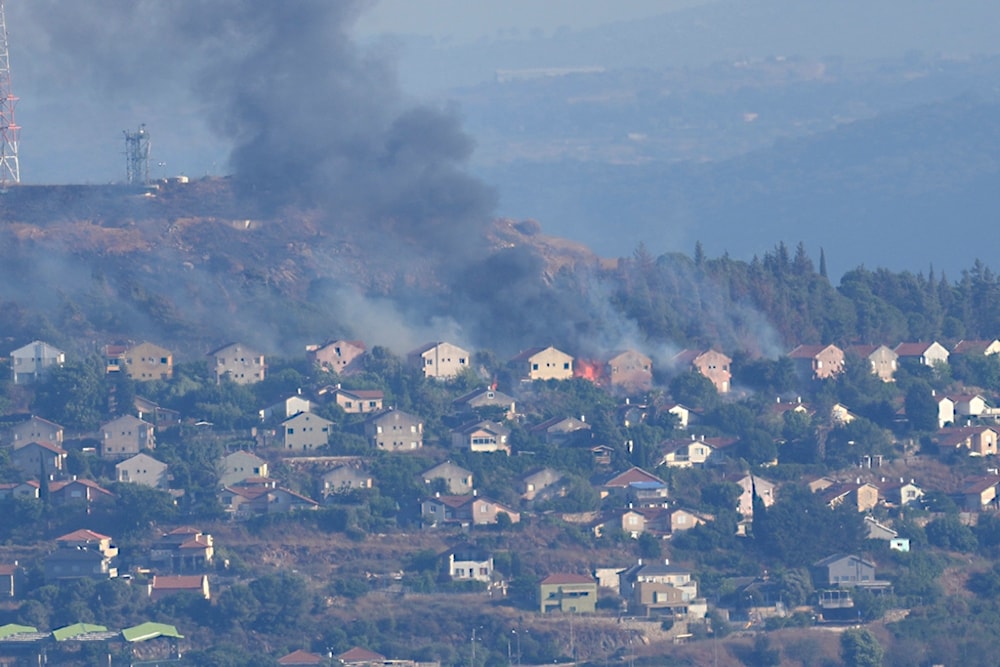'Israel' begins mapping damaged infrastructure in North: Israeli media
According to Israeli authorities, as of June 23, there have been reports of 1,016 houses damaged since the beginning of the war, with 75% of the damage caused by Hezbollah rockets.
-

Fires and black smoke rising from between buildings in Metulla hit by Hezbollah shelling is seen from the Lebanese side of the Lebanese town of Marjayoun, Lebanon, Saturday, June 22, 2024. (AP)
A Directorate of the Israeli Security Ministry, in collaboration with the Israel Tax Authority and other bodies, began mapping the damage to buildings in settlements in northern occupied Palestine along the border with Lebanon, Israel Hayom reported.
Lilach Shoval, the newspaper's military correspondent, mentioned that the purpose of mapping the damage is to gather information to prepare a plan for rehabilitating settlement units damaged in the war, with Israeli authorities taking into account that the units undergoing repair may be damaged again.
According to the Northern Horizon Directorate, as of June 23, there have been reports of 1,016 housing units damaged since the beginning of the war, with 75% of the damage caused by Hezbollah rockets and the remaining due to the activities of Israeli military forces in the area, such as tanks damaging roads.
The figures also show that 67.9% of the affected properties are residential, 17% are public buildings, and 13.6% are other infrastructure, with 1.5% being other types of infrastructure, with the most affected settlements being Metulla, al-Manara, Kiryat Shmona, Shtula, Zar'it, and Avivim.
Israel Hayom pointed out that the rehabilitation plan will not start from the first line of the border but will begin "wherever possible," yet not in units exposed to the border.
The newspaper also pointed to a plan set by the Ministry of Education to protect educational institutions in the North, which estimates suggest will not be completed before September 1, with no current expectation for Israelis to return to their settlements before the new school year begins.
Upper al-Jalil expected to remain deserted for years
Despite all these measures, Israel Hayom suggested that they are still unsatisfactory for the settlers in the North, especially as the critical issue remains whether they will return to their houses when the security situation stabilizes.
The outlet noted that these settlers are evacuating elsewhere, enrolling their children in different educational settings, and experiencing a comfortable life in other occupied areas, which lessens the likelihood of many returning.
Furthermore, Israel Hayom pointed out that when the war in the North ends, which currently shows no sign of ending soon, a program will be needed to encourage Israelis to return to the northern settlements, whether through long-term housing benefits, improving infrastructure, paving roads, creating job opportunities, and establishing higher education institutions.
Elsewhere, the newspaper warned that if Israeli authorities do not take such measures, Upper al-Jalil might remain deserted for many years to come.

 3 Min Read
3 Min Read








